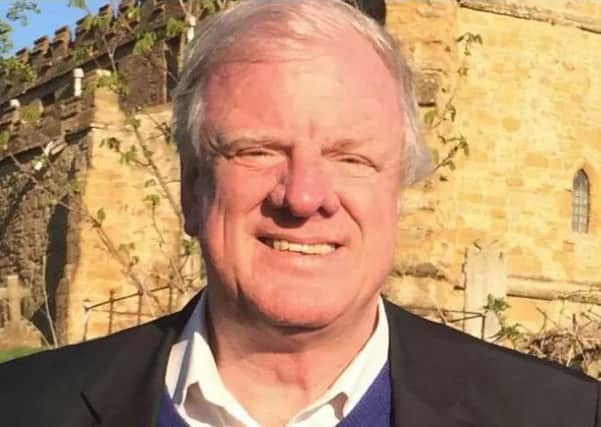Geust column: Brexit will hand control of our laws back to us


This means that, pending the passage of the EU Withdrawal Bill, from that moment onwards our country will be in charge of its own laws, made by democratically accountable representatives, and interpreted by the judges of British courts.
Rightly, the Government is seeking a suitable deal that will ensure the best interests of this country are protected in our future relationship with the European Union.
Advertisement
Hide AdAdvertisement
Hide AdWe will part as friends and there are many areas in which we want to pursue close co-operation.
But the referendum result was clear, and the Government is implementing it.
The Prime Minister has been meeting with business leaders from across Europe to discuss the shared opportunities for industry as we prepare for our new place on the world stage.
As I said in the Commons the other day, we want a gold-class economy that protects workers’ rights, not a bargain-basement economy.
Advertisement
Hide AdAdvertisement
Hide AdThat’s why all the existing EU laws are being incorporated into British law.
Leaving the EU will not mean any lessening of standards in, for example, consumer protection or the environment.
Michael Gove has been doing an excellent job as Environment Secretary and has announced plans for a new independent body to uphold environmental standards in England after Brexit.
Leaving the EU gives us the opportunity to put the environment right at the heart of policy making and to forge a policy that is precisely fine-tuned to the challenges we face here in Great Britain.
Advertisement
Hide AdAdvertisement
Hide AdAs a country in charge of its own laws, we will have the chance to learn from the successes of the EU as well as its failures.
The new authority will be put on a firm statutory footing in order to give it the ability to hold the powerful to account and protect our English landscape for future generations.
I have also raised the subject of family hubs in the Commons.
These are centres where children in need and their families can receive coordinated local support.
Advertisement
Hide AdAdvertisement
Hide AdFamily breakdown and childhood difficulties result in a proliferation of problems further down the line, from lawbreaking to poor educational achievement, so it’s important that these problems are tackled head on and as early as possible.
Tax avoidance has been in the news again, which probably means it’s worth pointing out that since 2010 we have secured an additional £160 billion in tax revenue, more than the annual UK-wide NHS budget, by combatting avoidance.
The country’s tax gap – that’s the difference between the amount of tax due and the amount actually collected – is now the lowest in the world, and fell to its lowest level ever in 2015-16.
Unfortunately Mr Corbyn and his friends in Labour blocked our measures to stop companies shifting losses overseas to avoid corporation tax, which would have brought in a further £8.6 billion.
That money could have gone a long way to shoring up local services here in Lincolnshire.